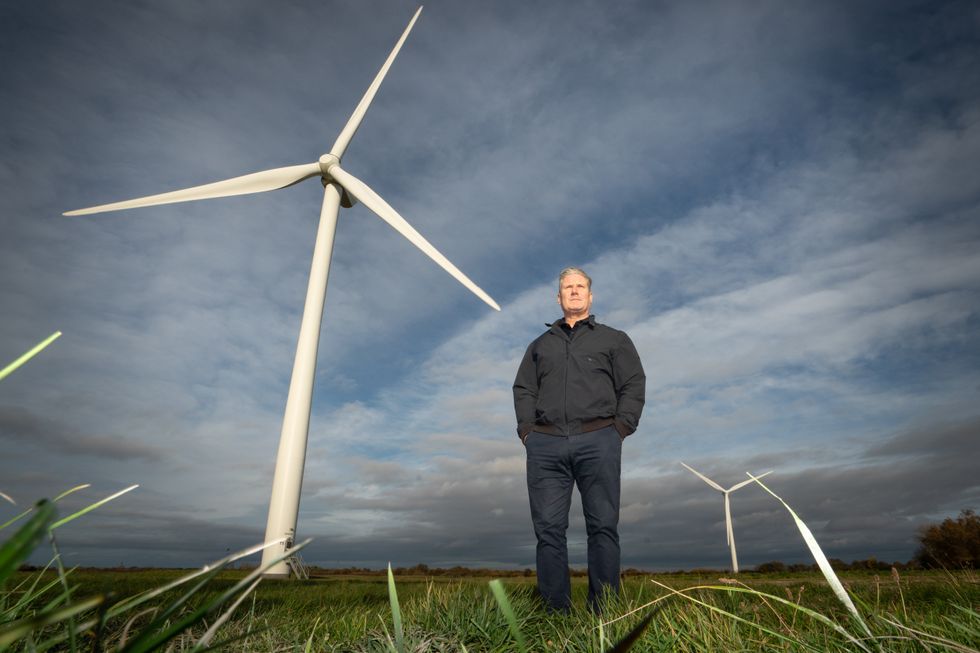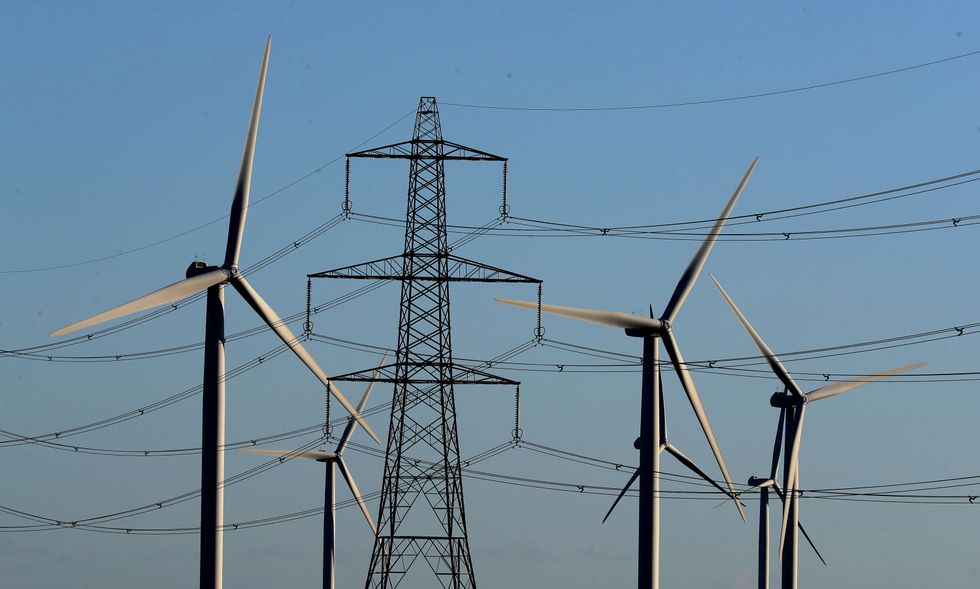Britain paying record £1bn to switch OFF wind farms to stop power surges overwhelming the grid due to high winds
Britons have shelled out an “absurd” £1billion to temporarily shut down wind turbines in 2024 alone, a damning new report has revealed.
With Britain’s energy grid struggling to cope with the power generated by high winds, turbines across the land have been “curtailed” to protect it from surges.
The so-called curtailment is where wind turbines are paid to switch off at times of high winds to stop a surge in power overwhelming the grid – and households and businesses are expected to pay for this through their bills.
And in the first 11 months of 2024, the cost of the temporary shutdowns has skyrocketed into 10-figure sums – beating out 2023’s £779million and 2022’s £945m.

The data, unearthed by Octopus Energy and first reported by Bloomberg, has sparked incredulity from energy specialists, who warn that cheap power is “going to waste” at the same time that new wind farms are opening up across Britain.
Clem Cowton, director of external affairs at Octopus, said: “The outdated rules of our energy system mean vast amounts of cheap green power go to waste.
“It’s absurd that Britain pays Scottish wind farms to turn off when it’s windy, while simultaneously paying gas-power stations in the South to turn on.
“We need to change the rules that govern our system to make the most of our homegrown energy and get bills down for British households and businesses.”
LATEST ENERGY NEWS:
- Labour faces legal backlash to ‘cruel’ Winter Fuel Payment cut as pensioners lose £300
- Net zero is a failure that’s making Britain POORER, claims Trump’s energy secretary
- Energy price cap rise impact REVEALED: Which areas will pay the highest bills in the UK?

Octopus and other firms have called for the country to shift to a regional pricing system, which they say would incentivise more wind farms to be built closer to the areas which need power most.
At the moment, electricity is transported to the higher-demand South from producers in Scotland and the North – and if the energy firms have their way, there wouldn’t be as much of a need for the hundreds of miles of cables which make this happen.
On the other hand, the energy firms’ plans would likely lead to homes and businesses in the South paying more for their energy than those in the North, which would doubtless prove highly controversial.
Jason Mann, an electricity markets expert at FTI Consulting, said the high curtailment costs came as a result of the lack of cables to transport power to the South.

But he also argued the £1bn cost was partly the result of Britain’s national electricity pricing system.
Mann said: “Congestion costs are an inevitable problem under the current market design we have in Britain.
“Increasing the amount of transmission capacity we have can alleviate the problem but not fully… It will remain an enduring issue.
“At some point you have to do something that encourages greater demand in the North, for example lower prices.”
According to the National Energy System Operator (Neso), curtailment costs are on track to reach £6bn in just five years if the status quo continues.

